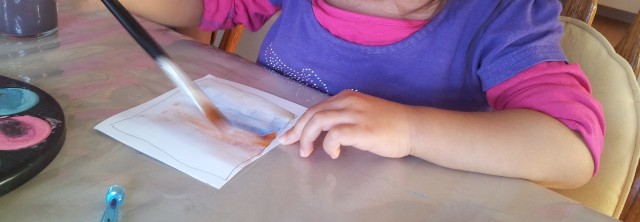
Our oldest daughter turned 3 in May. We had a fantastic birthday party with friends and family, involving all kinds of instruments, and it ended with a sing-a-long with E on the ukulele.
About a week later, we got a call from a kindy who had E on their waitlist. “We’ve got two days a week available. Are you interested?”
A week later, lunch made and bag packed, off we were.
The teachers were professional and caring. We were given lots of support. E loved all the activities there (she would cry when I came to pick her up). Everything was run well and we felt it was a safe environment.
But we quickly figured out that the overall philosophy of this kindy was to develop independent, self-directed learning. In contrast, we’re still wanting E to continue developing as a child under her parent’s authority and care.
All in all, kindy wasn’t working. So we apologised, backtracked and took E out two weeks later.
But as we reflect back on the last month, a few more things have come to mind.
One was that our kindy experience revealed that we were controlled by a desire to please others. If we’re honest, looking back, we had a hard time saying no. It was much easier to do something with the approval of our Plunket lady, our friends and our family. After all, they did it, so why not? As kids we went to kindy, so why not? Why wouldn’t you put them there?
Another was that we essentially made the decision by default. It was more a “can you think of any reason not to?” Rather than “are you convinced about the reasons to?” We hadn’t really sat down and thought through how we wanted to teach our children beyond the next year. The total amount of discussion about kindy came to 2-3 brief conversations and a quick visit. In hindsight, we should have been more thoughtful about it. What were our reasons for sending E to kindy? What will be the benefits? What are the costs? In the helter-skelter of life, we failed to devote ourselves to word and prayer about this. It’s a warning against making decisions by default in other areas of our life. Why go to uni? Well, why not? Why take this job? Well, why not? A decision without conviction ends up being detrimental.
Finally, it was a vivid object lesson for us that saying yes to one thing is saying no to another.
“Every yes is a no. When you say, ‘Yes I will be at that soup kitchen’ you are also saying ‘No, I won’t be visiting mum in hospital.’ If you say, ‘Yes I will spend every night with church people and in church programmes’ you are saying ‘no’ to bearing witness to Jesus among your work friends and social network. So consider the ‘no’ in your ‘yes’.”
In our case, a yes to more time learning at kindy meant a no to more time learning with mum.
A yes to going to a different stimulating environment was saying no to our home (and the places mum and dad go) as a stimulating environment.
So in our next decision – whether it’s about school, home, ministry, marriage, career, hobbies – we need to remember considering the no in the yes. Rather than ask “What are we saying yes to?” – maybe it’s better for us to also ask: “What are we saying no to?”
After all, Jesus Himself put it in similar terms when making the call for disciples: “Whoever wants to be my disciple must deny themselves and take up their cross daily and follow me.” We say no to one thing when we say yes to Another.
————————-
Would we send E to kindy again in future? Perhaps. But it would definitely be after serious thought.
In the meantime, as I write this, I’m sitting around the table while Cheryl is teaching E and H how to write. And as our eldest daughter writes her name out in confident strokes, and hands me a self-made card with her careful, single-stroke observations, I’m reminded again that saying no to something is not always a bad thing.



